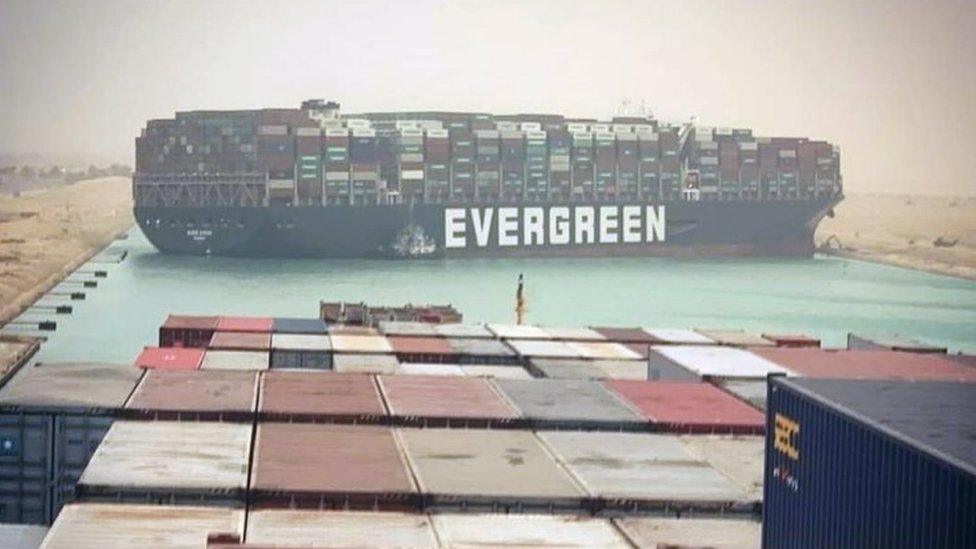'Our customers are worried about the Suez Canal blockage'
- Published
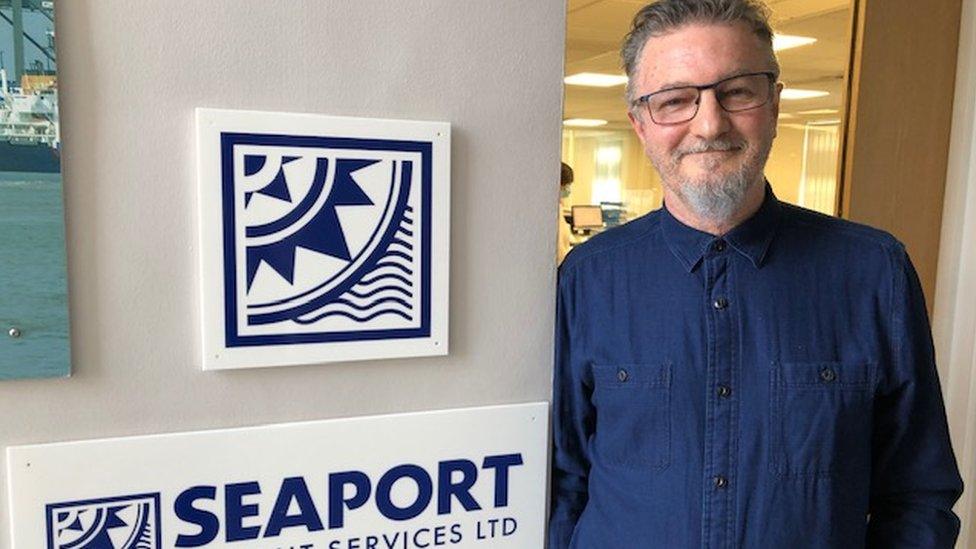
Steve Parks says he has 20 containers of goods stuck on the Ever Given
British businesses are getting worried as Egypt's Suez Canal continues to be blocked by a Taiwanese mega-container ship for the fourth day in a row.
Seaport Freight Services, a shipping and freight-forwarding company based at the Port of Felixstowe, has 20 containers of goods stranded on the Ever Given.
"We're waiting on food goods like coconut milk and syrups, some spare parts for motors, we've got some fork lift trucks, some Amazon goods on there, all sorts," Steve Parks, director of Seaport Freight Services, tells the BBC.
"All our customers are hearing about it, and they're phoning us to ask when it will be resolved."
The 400m-long (1,312ft) ship Ever Given, operated by Taiwanese transport company Evergreen Marine, is one of the world's largest container vessels.
It weighs 200,000 tonnes, with a maximum capacity of 20,000 containers.
The ship ran aground and became lodged sideways across the waterway on Tuesday after a gust of wind blew it off course.
It is blocking one of the world's busiest trade routes, causing a huge tailback of other ships trying to pass through the Suez Canal, which separates Africa from the Middle East and Asia.
There are more than 160 vessels waiting at either end of the canal, according to tracking data from Lloyd's List.
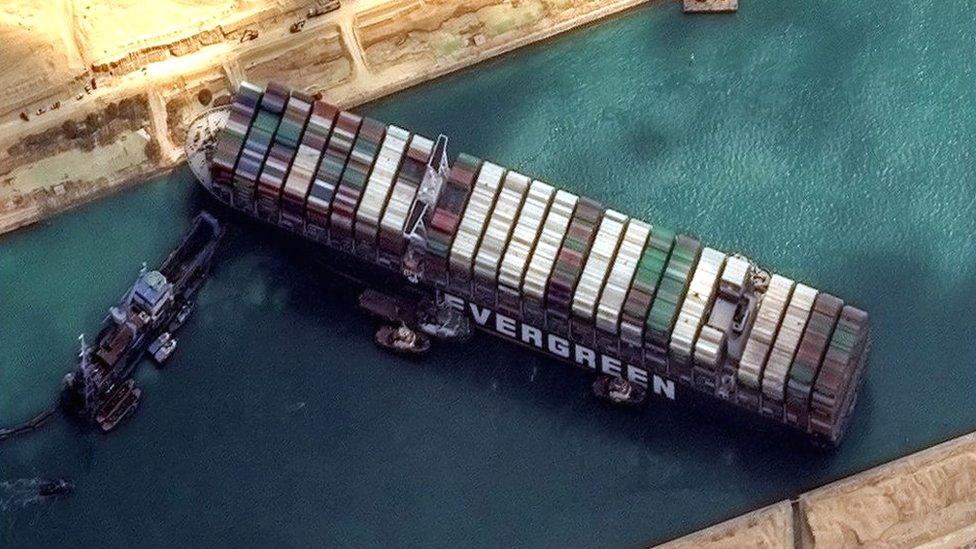
The Ever Given ship, viewed from satellite, remains stuck in the Suez Canal
At the moment, Mr Park says there is only one way to get goods through - go round the Horn of Africa, which will add another seven days to the journey.
"We've had supply problems from the Far East, we've had Covid, we've had the Brexit changes. You couldn't really make it up," he says.
"Things were just starting to get better. We were just starting to get over the shortage of containers, the shortage of vessels, and then this happens."
'We're about to run out of stock'
Mirical Emblems is a firm specialising in heat-applied print transfers for clothing and uniforms, based in Mansfield, Nottinghamshire.
It has a shipment of raw material stuck on a boat in the Red Sea that is trying to get into the Suez Canal. The cost of the goods and the cost to ship them comes to £16,000.
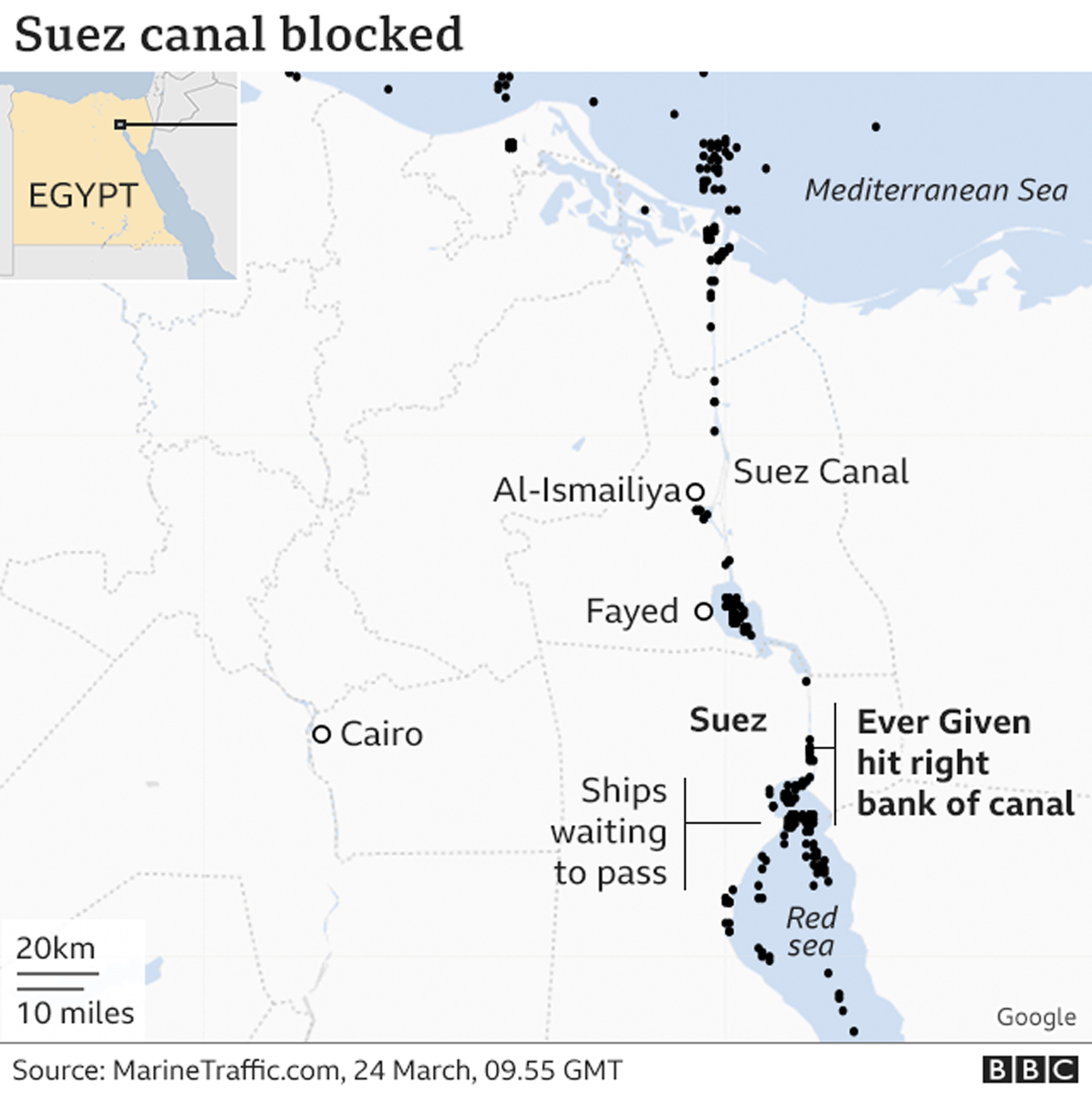

The shipment is already delayed due to the pandemic, as the original ship it was meant to travel on was rerouted, and had to wait for the next vessel bound for the UK.
The ship with the raw material shipment is meant to dock at the Port of Southampton on 9 April.
But if the delivery continues to be delayed, Mirical Emblems will have to pay for a second shipment of the raw material and have it flown over from South Korea for three times the shipping cost - roughly £21,000 - because the firm can't afford to upset its clients and affect their supply chains too.
"We're about to run out of stock, and this is just another cost we could do without," says Mirical Emblems' managing director Jonathan Dul.
"The pandemic has caused our turnover to fall by 20%. We've increased costs due to Brexit and now we're having delayed shipments and having to potentially buy materials twice."
'It means more stress'
Thomas O'Brien is managing director of Boxer Gifts, a toy manufacturer based in Leeds.

Toy manufacturer Thomas O'Brien says shipping is current "difficult, long and expensive"
His products are made in China, and he has six containers on ships now queuing up to get through the Suez Canal, each containing around 50,000 toys.
"It means longer shipping times, less stock availability, more money tied up on goods at sea, rather than in our warehouses, and it means more stress," he tells the BBC.
He says it will also impact his customers - retailers, who will have to wait a little longer to get their stock.
Plus, Mr O'Brien recently heard that it is likely his firm will have to pay some additional charges in order to receive the outstanding shipments, due to the ongoing situation at the Suez Canal.
'It's another addition to the long list of reasons why shipping is difficult, long and expensive at the moment, " he says.
"The Suez Canal situation is yet another spanner in the works that makes dealing with international shipping a hell of a lot harder."
Logistics UK, which represents freight businesses, says that a lot of the goods currently bound for the UK are likely to be for retailers who are stocking their shelves ready for the summer.
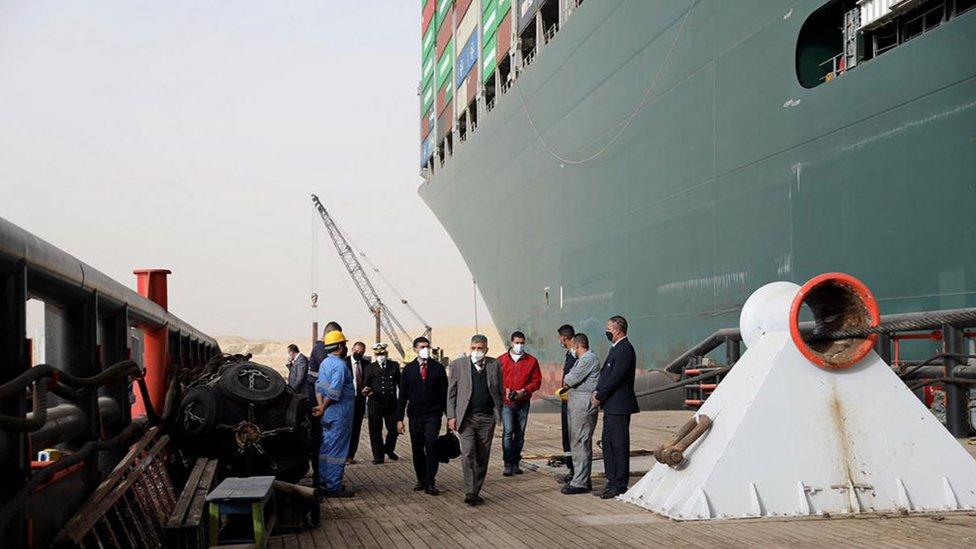
Egyptian officials inspect the operation to refloat the Ever Given ship
There is a risk that some goods, such as perishable foods, could arrive too late to be sold, due to ships either waiting to go through the canal, or having to be re-routed round the southern tip of Africa, warns Alex Veitch, general manager of policy at Logistics UK.
And while the current industry trend for extraordinarily large vessels means more goods can be transported in one go, the impact is much greater when things go wrong.
"When they turn up late or at the wrong time, it puts a lot of pressure on ports to offload them very quickly so that they can go off to the next stop," he says.
"That then puts pressure on domestic transport operations to get them to the shops in time, so it really does show how easy it can be to disrupt almost and invisible network of moving goods from source to the shop."
- Published26 March 2021
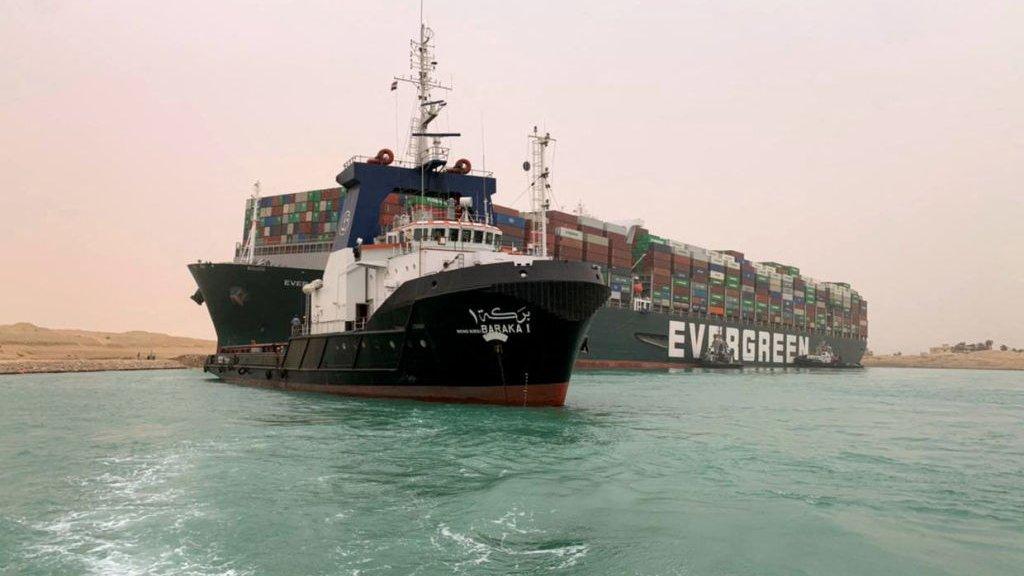
- Published24 March 2021
